Best HVAC System Brands To Look At In 2025
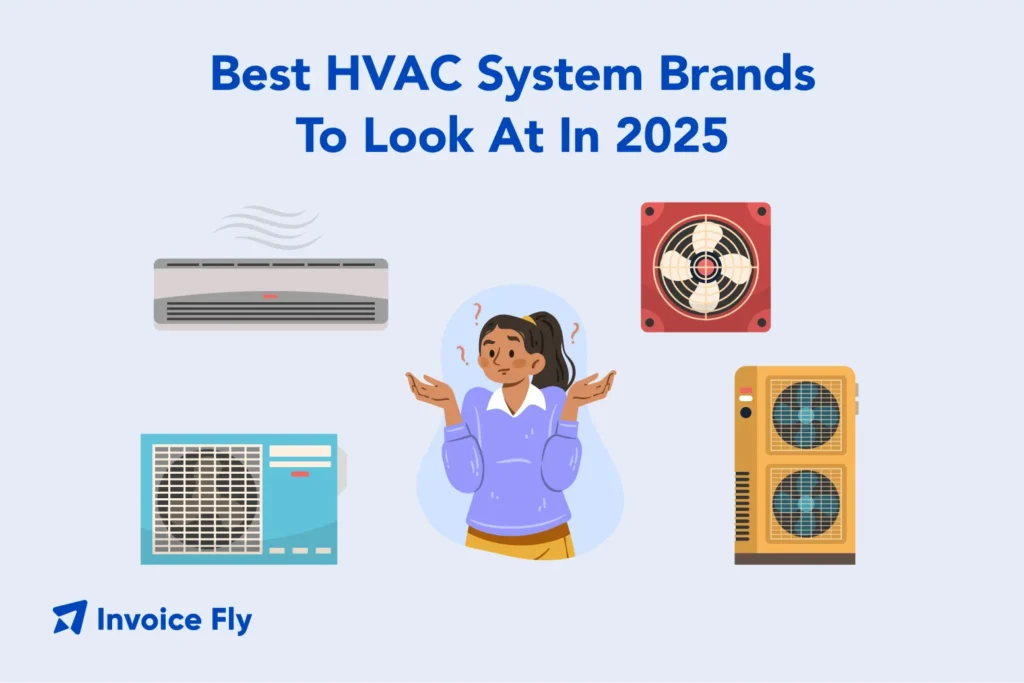
Table of Contents
Every HVAC pro has their go-to brand. The one they trust when a client calls about rising energy bills or a failing heat pump. In 2025, competition among manufacturers has only sharpened. Between new federal efficiency standards, supply chain shifts, and growing demand for electrification, the best HVAC system is about integration, diagnostics, and long-term value as well as cooling and heating.
This guide compares the best HVAC system brands 2025 has to offer, tried-and-tested favourites used by contractors nationwide. Whether you’re recommending a system to a homeowner, bidding on new construction, or updating your service offerings, here’s a breakdown based on reliability, efficiency, and real-world performance.
In this guide, we’ll cover:
- How to choose the right HVAC system for your clients
- What defines a trustworthy HVAC brand
- The top 10 best rated HVAC systems to watch in 2025
- Cost, financing, and rebate considerations
- Maintenance and warranty tips every technician should know
Get Started with Invoice Fly’s Software
Invoice Fly is a smart, fast, and easy-to-use invoicing software designed for freelancers, contractors, and small business owners. Create and send invoices, track payments, and manage your business — all in one place.
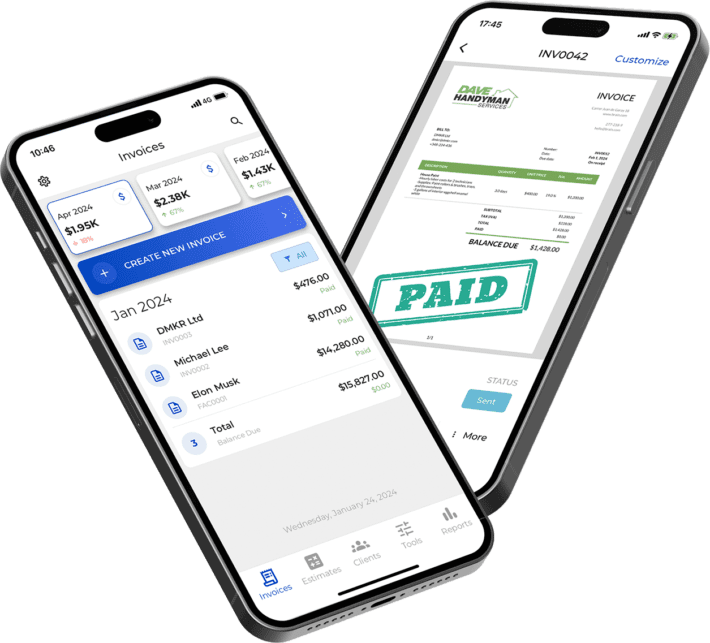
How to Choose the Right HVAC System for Your Needs
Every installation brings its own demands: climate zone, square footage, duct condition, insulation, and power source. The best home HVAC systems are those matched precisely to the property and the people living in it. For a complete look at how these decisions affect your bottom line, read our HVAC Pricing Guide Made Simple.
Key features to compare
When comparing systems, contractors focus on:
- Efficiency ratings: Check SEER2, HSPF2, and AFUE. The U.S. Department of Energy’s 2023 updates raised minimum ratings, so any best HVAC system 2025 option should meet or exceed those.
- Smart controls: Wi-Fi thermostats, zoning, and remote diagnostics are now standard on high-end units.
- Zoning capability: The best HVAC zoning systems use variable-refrigerant-flow (VRF) or inverter compressors for room-by-room control.
- Noise levels: Clients want quiet operation (below 55 dB outdoors).
- Warranties: Leading brands offer 10- to 12-year compressor coverage — a key differentiator among the best rated residential HVAC systems.
What to Look for in an HVAC Brand
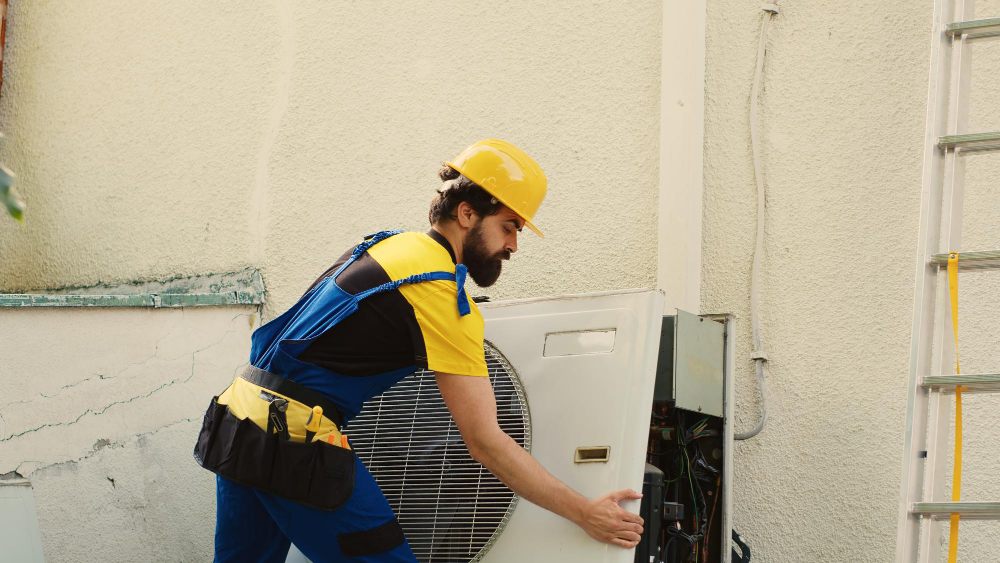
Choosing the right manufacturer matters as much as the equipment itself. Poor parts supply or service networks can turn even the best HVAC systems into headaches. If you’re still growing your company, see How to Start an HVAC Business to learn how brand partnerships impact profit margins.
Reliability, service network and parts availability
Brands with solid U.S. distribution and local wholesalers save techs time. Trane, Carrier, and Lennox regularly rank top for reliability and support in Consumer Reports.
Efficiency ratings and energy certifications
Energy Star certification is now baseline. The best all-electric HVAC systems surpass it by pairing inverter compressors with variable-speed blowers to cut energy use by up to 30 percent.
Warranty policies
Lennox, Daikin, and American Standard lead with up to 12-year compressor warranties. If you regularly manage paperwork, our HVAC Contracts Guide covers templates and best practices for documentation.
Innovation and modern features
From self-diagnosing sensors to smart air purification and remote apps, the best HVAC system brands focus on automation and comfort. Mitsubishi Electric and Daikin stand out for zoning and whisper-quiet operation.
Cost vs value
Contractors know “cheap now” often means “costly later.” Helping clients understand life-cycle value builds trust. See HVAC Sales Techniques for advice on communicating ROI.
Top 10 Best HVAC System Brands to Watch in 2025
Below are the best HVAC systems 2025 contractors trust most for performance, support, and innovation across residential and light-commercial projects.
1. Trane
Trane remains a go-to for durability and high SEER2 ratings (up to 22). Its Spine Fin™ coils resist corrosion, making it one of the best residential HVAC systems for coastal installs and high-humidity zones.
2. Carrier
Carrier’s Infinity series features Greenspeed Intelligence for adaptive cooling. Their quiet, humidity-balanced systems regularly top lists of the best HVAC systems 2024 and remain favourites for homeowners in the South.
3. Lennox
The Ultimate Comfort System® combines smart thermostats, zoning, and air purification — ideal for clients wanting the best HVAC system for home comfort and air quality. The SL28XCV is among the highest-rated Energy Star models to date.
4. Rheem
Rheem’s EcoNet technology offers real-time alerts and diagnostics. With reliable distribution and mid-range pricing, Rheem regularly appears on “best rated HVAC systems” lists for value and support.
5. Goodman
Goodman’s ComfortBridge tech lets components communicate seamlessly. It’s a strong option for budget-friendly projects needing dependable performance and long warranties — a top pick for contractors installing the best HVAC system for new construction.
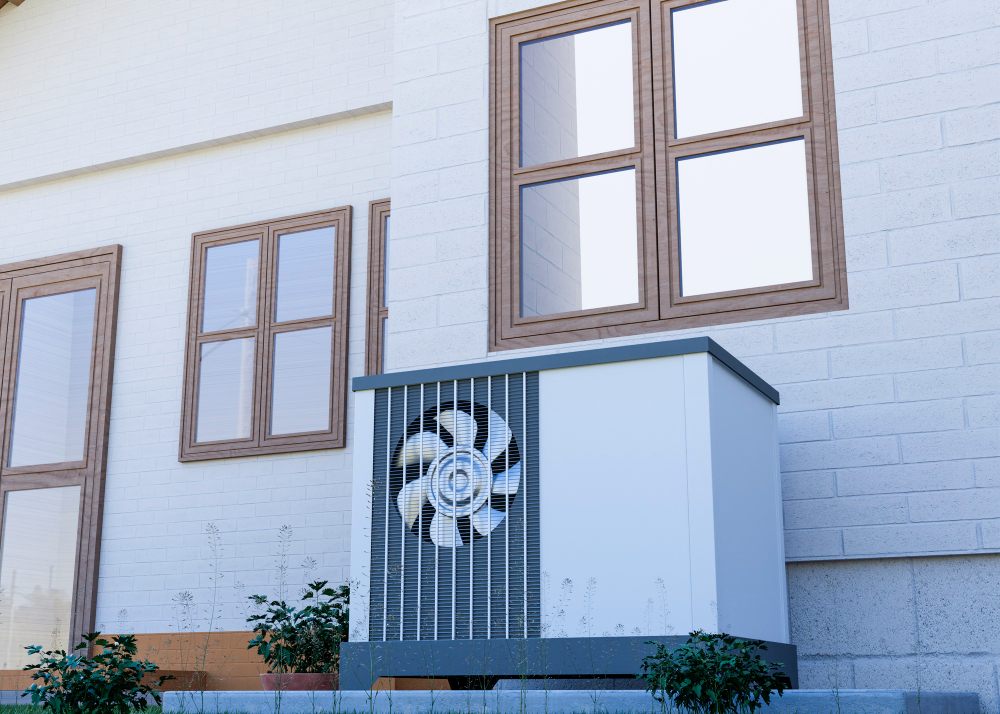
6. Daikin
Daikin’s Fit and VRV lines excel in multi-split and space-restricted applications. Their variable-refrigerant volume tech makes them leaders in smart zoning and energy savings, consistently ranked among the best HVAC system brands globally.
7. Mitsubishi Electric
Renowned for ductless and VRF systems, Mitsubishi’s Hyper-Heating INVERTER® units maintain output even at −13 °F. They’re front-runners for the best all-electric HVAC systems and the best HVAC zoning systems for larger homes and multi-unit buildings.
8. American Standard
Sharing Trane’s engineering at a slightly lower price point, American Standard’s Gold series is often listed among the best HVAC systems for contractors prioritising ease of install and consistent parts support.
9. Bryant
Bryant’s Evolution series integrates smart humidity control and quiet operation, ranking as one of the best home HVAC systems for mixed-climate regions where comfort control matters most.
10. Ruud
Rheem’s sister brand, Ruud, focuses on ease of service and durability. Its Achiever Plus® line features variable-speed fans and anti-corrosion cabinets, making it a trusted choice for installers seeking the best rated HVAC systems at a mid-range price.
Industry Insight: According to Markets and Markets, the global HVAC system market will grow from $206 billion in 2024 to $280 billion by 2029 as demand for energy-efficient retrofits and smart controls rises.
For deeper role insights, see our HVAC Technician Job Description.
Cost and Financing Considerations
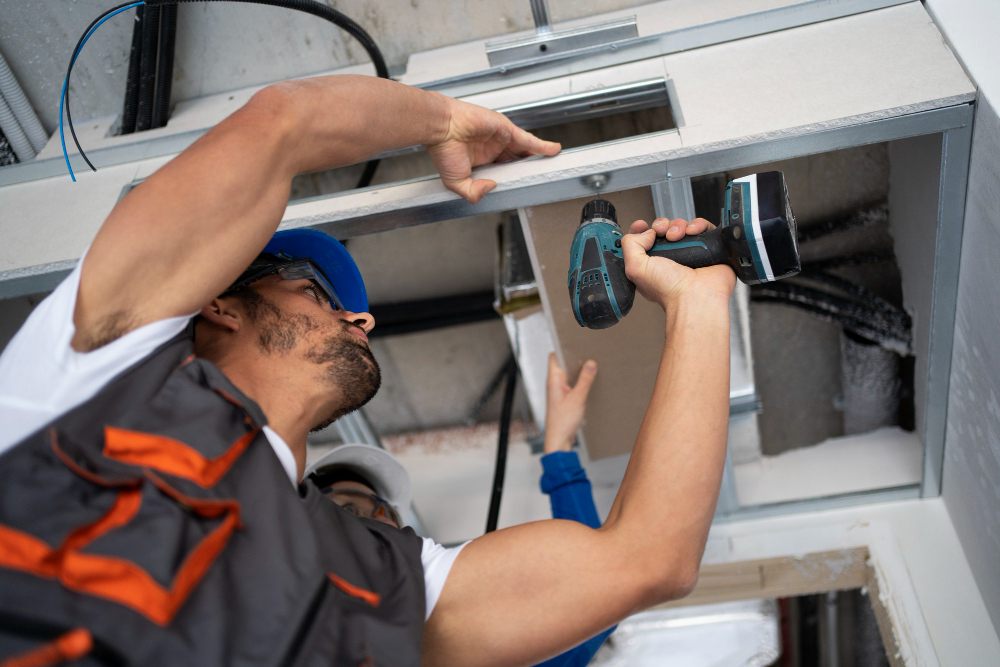
Typical price ranges
Average 2025 equipment + installation costs:
- Central air conditioning system: $5,500–$9,000
- Heat pump system: $6,500–$11,000
- Ductless mini-split: $4,000–$8,000 per zone
High-efficiency units may cost more initially but reduce energy bills by 20–30 percent. See HVAC Sales Techniques for help explaining ROI to clients.
Financing and incentives
Many contractors offer financing through lenders or in-house plans. Federal and state programs (such as the Energy Efficient Home Improvement Credit) allow homeowners to claim up to 30 percent on qualifying installs through 2032.
Need to organise invoices and estimates? Try Invoice Maker — built for HVAC pros who value speed and clarity.
Maintenance, Air Quality & Warranty Tips
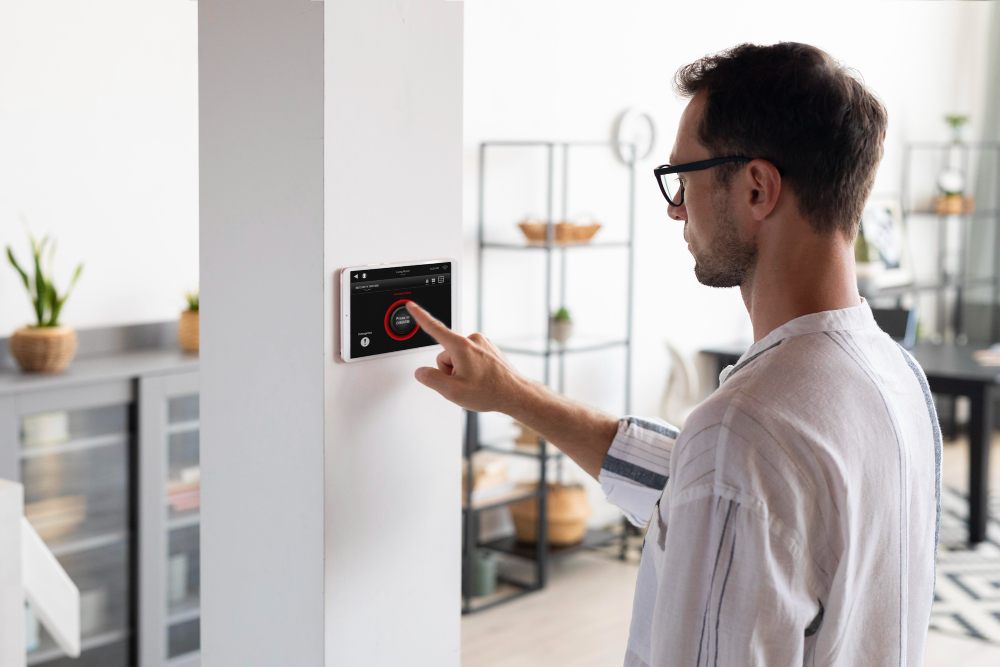
Regular service extends lifespans and keeps warranties valid. For seasonal checklists, see our HVAC Inspection Guide.
Indoor air quality upgrades
Clients increasingly ask about air quality. The best air purifier for HVAC system installs use HEPA filtration paired with UV-C light. Combining purification with the best UV light for HVAC system adds microbial control and can boost referral business.
Maximising warranty benefits
- Register units within 60 days.
- Document maintenance visits.
- Use OEM parts to avoid disputes.
- Remind clients that many warranties are transferable to new owners.
A well-maintained system can last 15–20 years versus 10–12 for basic models. Before expanding into new states, review How to Get an HVAC License for requirements.
Choose Your Go-To With Confidence
For contractors, brand loyalty comes down to trust earned on the job. Every manufacturer listed has proven field performance, but the best HVAC system brand is the one that fits your client’s property, climate, and budget while supporting your business long-term.
Protect your operation with HVAC Business Insurance and simplify quoting and billing with Invoice Maker — free software built for technicians who want to stay organised and get paid faster.
And remember, the best HVAC systems for 2025 aren’t just energy-efficient. They’re also smarter, cleaner, and tailored for both residential and commercial success.
Get Started with Invoice Fly’s Software
Invoice Fly is a smart, fast, and easy-to-use invoicing software designed for freelancers, contractors, and small business owners. Create and send invoices, track payments, and manage your business — all in one place.

FAQs about HVAC Systems
If a system’s age multiplied by its repair cost exceeds $5,000, replacement is usually more cost-effective.
Expect $7,000–$12,000 depending on brand, region, and ductwork condition.
Not directly, but qualifying energy-efficient equipment can earn credits under the Inflation Reduction Act.
Spring and early fall — “shoulder seasons” — often bring manufacturer rebates and contractor discounts.
Most central-air systems last 15 years; heat pumps 12–15; furnaces 15–20 with regular maintenance.
